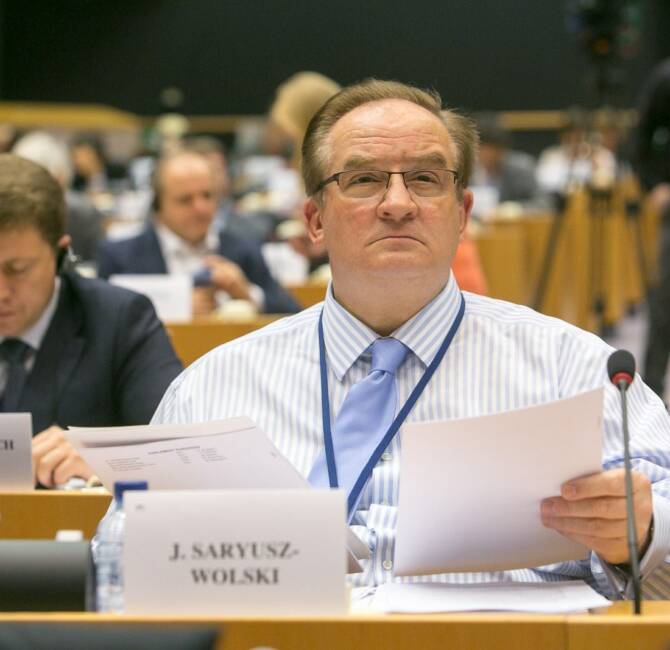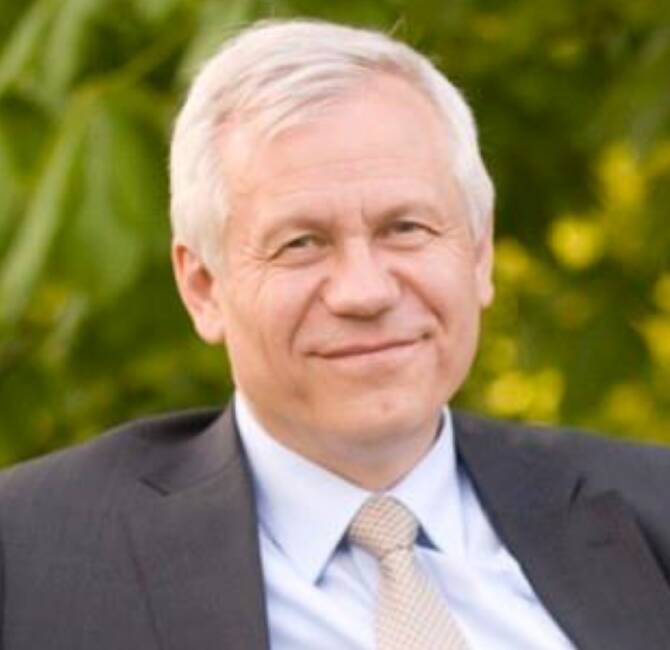Germany – Interview with Alexander Gauland, AfD President: “We refuse to continue the federalisation of Europe”. Written interview conducted by Ferenc Almássy and realized by mail at the beginning of July 2017.
Ferenc Almássy: You are leading the AfD for this autumn’s elections in Germany. You are opposed to Angela Merkel’s immigration policy, considering it a danger for Germany and a nonsense policy. However, polls indicate that Merkel will most probably be reelected. How do you explain this? And what are your strategies and goals in these elections?
Alexander Gauland: Electoral results are influenced by many factors. Angela Merkel’s policy vis-à-vis refugees is only one of those factors. The good economic situation in Germany is another. What is more: electoral results depend on long-term trends that opposition parties can hardly change in a short period of time. That is why it is quite clear that it is difficult to dismiss Angela Merkel from power, because many Germans consider that they are still doing very well, that they do not yet notice the refugees so much, thinking the crisis can be overcome in one way or another.
FA: Regarding immigration, Hungary’s Prime Minister Viktor Orbán, alongside others, expressed his concerns about the probability of new great waves of migrants, similar to the one of 2015. Do you agree with this prediction? And what should Germany do to counter this and handle immigration?
Alexander Gauland: I believe that this prediction is correct. We are already witnessing waves of refugees crossing the Mediterranean from Libya to Italy and, as demographers point out, millions of people are waiting in the Southern Sahara to set out to Europe. I believe that Viktor Orbán hit the nub with his gloomy predictions. I do not think we can manage such immigration. Integration requires a preponderant weight of the indigenous population and this condition would be significantly shaken if another wave arrived.
FA: If Merkel is reelected, political observers foresee the strongest Franco-German cooperation since the EU’s existence, since French President Emmanuel Macron is on the same page as the Bundeskanzlerin. That would mean most probably big steps toward the federalization of the European Union. How do you see the future in this configuration, and what would be the AfD’s role then?
Alexander Gauland: We refuse to continue the federalisation of Europe. We do not believe that national states become superfluous, nor do we believe that France wants to get dissolve into Europe, as little as Germany, or even smaller states like the Netherlands or Poland.
FA: Speaking of EU federalization, another topic on which Germany is focused seems to be a new kind of European collaboration, which is the so-called European Army project. Several countries, such as Netherlands, Czechia and Romania, have already integrated troops under German commandment and Central European leaders, such as Viktor Orbán, are asking for this European Army, which basically would be a NATO without Turkey, Canada and the USA. What is your opinion on this topic?
Alexander Gauland: We do not believe there should be a European army. NATO remains the best defense for the West, as it brings together Canada and the United States as well as Europeans on both sides of the Atlantic. All attempts to exclude the United States from European defense are already erroneous in that they cannot be replaced by Europeans. Now even less than before Brexit, because the British armed forces with nuclear weapons can no longer be part of such a European army.
FA: Let us speak now about the Visegrád group: what is your opinion on this organization? And how do you see Germany’s role in the region, since most of the industry of these countries is ruled by German companies? What should be the relation between the Visegrád group and Germany, according to you?
Alexander Gauland: The Visegrád Group states are important partners for Germany which has always been well-advised to invite smaller European partners to its reflections and to accord its policy with its partners that we consider important, both in the West and in the East.
FA: You are known to be much more friendly towards Russia than the average political western elites. Although Germany is often presented as “anti-Russian”, facts are that Germany cooperates more and more with Russia, and the North Stream pipeline is a good example of this entente. How do you view the German-Russian relationship?
Alexander Gauland: Germany has always done well when it has good relations with Russia. This goes back a long way in history. Prussia was saved in 1763 by a reversal of the alliance of Russia, and a second time in 1807 by the Treaty of Tilsit with Napoleon. The Wars of Liberation (1815) would not have been possible without Russia and unification by Bismarck is also the fruit of a reversal of alliance with Russia, letting Austria support Prussia. German statesmen and monarchs lost sight of this situation after the end of the Bismarck era and led Germany into a confrontation that meant war, both in the West and in the East. This was a mistake, which is why good relations with Russia are the condition of a strong and secure Germany. To this extent, the expansion of NATO in contradiction with the oral agreements that had been agreed with Russia during the negotiations for reunification is a fault. The world order could only be altered with Russia; It was nevertheless modified against Russia and this resulted in the Crimean crisis and the Ukrainian crisis. That is why the old rules of Russian-Prussian politics, namely good relations with Russia as a condition for good coexistence in Europe, retain their value.



